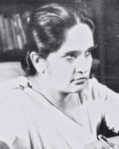| |||||||||||||||||||||||||||||||||||||||||||||||||||||
151 seats in the House of Representatives of Ceylon 76 seats were needed for a majority | |||||||||||||||||||||||||||||||||||||||||||||||||||||
|---|---|---|---|---|---|---|---|---|---|---|---|---|---|---|---|---|---|---|---|---|---|---|---|---|---|---|---|---|---|---|---|---|---|---|---|---|---|---|---|---|---|---|---|---|---|---|---|---|---|---|---|---|---|
| |||||||||||||||||||||||||||||||||||||||||||||||||||||
| |||||||||||||||||||||||||||||||||||||||||||||||||||||
Parliamentary elections were held in Ceylon in 1970.
Background
SLFP leader Sirimavo Bandaranaike had come to the conclusion that her party's best hope of power was forming a permanent alliance with Ceylon's Marxist parties. She assembled the SLFP, the Trotskyist LSSP, and the Communists into the United Front coalition. The UF's platform was called the Common Programme; it featured extensive nationalization, a non-aligned foreign policy, expanded social programmes, and replacement of the British-imposed, monarchical Soulbury constitution with a republican constitution.
The UNP government of Dudley Senanayake had not made much headway with Ceylon's twin problems of inflation and unemployment, nor had it attempted solving the linked problems of feudal property relations and adverse terms of trade by agrarian reform and industrialisation. The UNP had become widely perceived as a party of the rich, out of touch with the concerns of ordinary people. The UF's socialist platform had much greater appeal.
Results
The UF (with 49% of the vote) won an overwhelming majority, despite the UNP's plurality of the popular vote, due to the member parties running in different constituencies. The Tamil majority constituencies voted mainly for the two Tamil parties, one of which (the All Ceylon Tamil Congress), later joined the UF.
The 1970 election was the last held under the Soulbury constitution. The UF Government established the free, sovereign and independent Republic of Sri Lanka in 1972, breaking the last ties of colonialism.
The British-owned plantations were nationalised and there was land reform – giving poor rural people land. Industrial democracy was instituted in the transport and manufacturing sectors. A National pharmaceuticals policy was established, allowing for affordable drugs. A new education policy was followed, aimed at making education more relevant.
Increased protection led to growth in the manufacturing sector, particularly in textiles and garments, electronics and industrial machinery.
| Party | Votes | % | Seats | |
|---|---|---|---|---|
| United National Party | 1,892,525 | 37.91 | 17 | |
| Sri Lanka Freedom Party | 1,839,979 | 36.86 | 91 | |
| Lanka Sama Samaja Party | 433,224 | 8.68 | 19 | |
| Illankai Tamil Arasu Kachchi | 245,727 | 4.92 | 13 | |
| Communist Party of Ceylon | 169,199 | 3.39 | 6 | |
| All Ceylon Tamil Congress | 115,567 | 2.32 | 3 | |
| Mahajana Eksath Peramuna | 46,571 | 0.93 | 0 | |
| Independents | 249,006 | 4.99 | 2 | |
| Total | 4,991,798 | 100.00 | 151 | |
| Registered voters/turnout | 5,505,028 | – | ||
| Source: Kusaka Research Institute | ||||
References
- "Result of Parliamentary General Election 1970" (PDF). Department of Elections, Sri Lanka. Archived from the original (PDF) on 9 December 2009.
- "1970 General Election Results". LankaNewspapers.com. Archived from the original on 10 March 2012.
- "Table 37 Parliament Election (1970)". Sri Lanka Statistics. 10 February 2009. Archived from the original on 9 October 2011. Retrieved 3 October 2010.
- "Sri Lanka Parliamentary Chamber: Parliament Elections Held in 1970" (PDF). Inter-Parliamentary Union.
- Rajasingham, K. T. (5 January 2002). "Chapter 21: A further lack of perspicuity". Sri Lanka: The Untold Story. Asia Times. Archived from the original on 27 January 2002.
| Presidential | |
|---|---|
| Parliamentary | |
| Provincial | |
| Local | |
| Referendums | |


